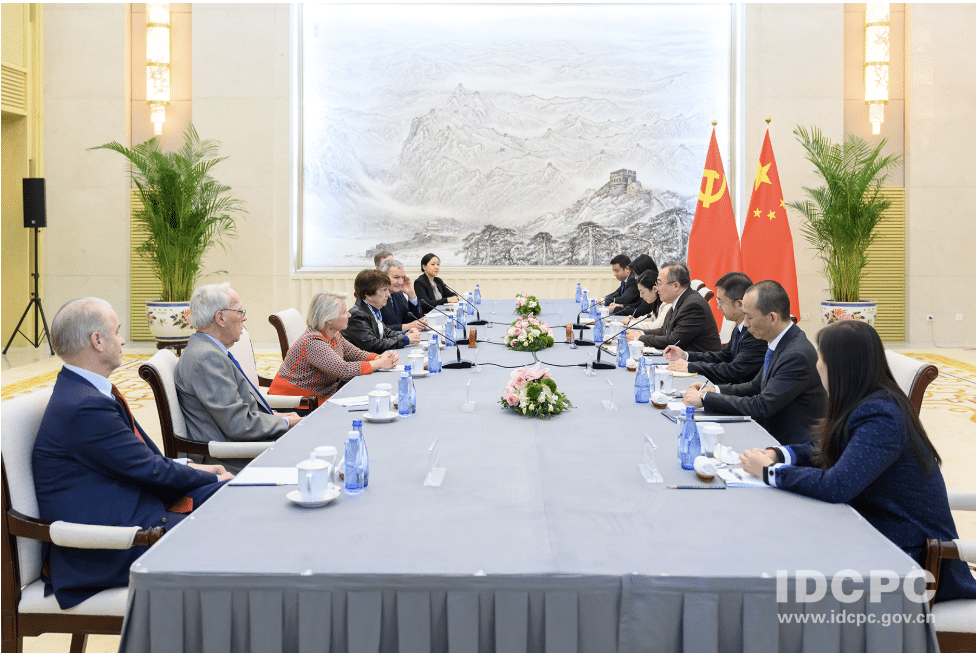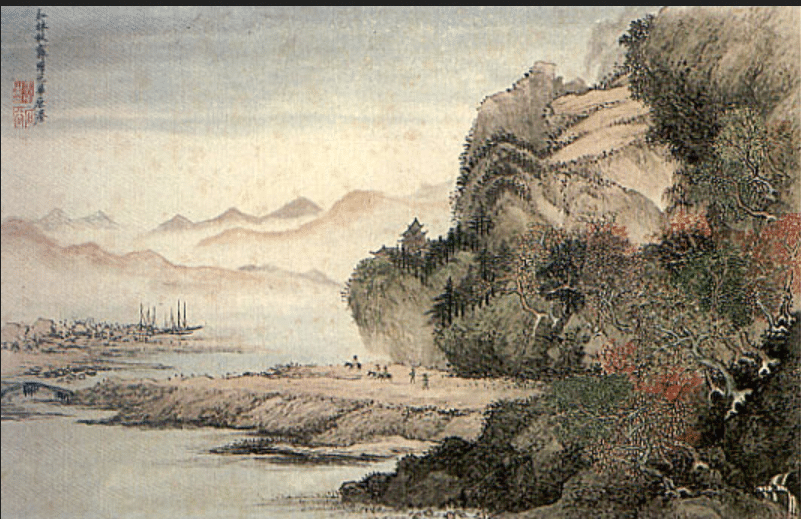A Tough Job to Keep: The Fates of China’s International Relations Ministers
- Analysis
 Tyler Quillen
Tyler Quillen  Alice Liu
Alice Liu- 11/05/2025
- 0

On December 4, 2024, Liu Jianchao, then Minister of the International Department of the Central Committee of the Communist Party of China (IDCPC), met in Beijing with a delegation led by Susan Elliott, President and CEO of the National Committee on American Foreign Policy (NCAFP).
Since Xi Jinping’s rise to preeminent power in 2012, he has pursued a stated policy of anti-corruption, the fallout of which has seen the investigation, arrest, prosecution, and even disappearance of officials across the Chinese political spectrum. From top military leaders to low-level civil servants, multitudes of the Chinese Communist Party’s members have been removed from office, and even at times, public life. In recent years, a particularly noteworthy trend amongst these purges has been the targeting and replacement of the People’s Republic of China’s foremost foreign diplomats. Most recently, this pattern has been showcased in the disappearance and replacement of the head of the International Department of the Central Committee of the Chinese Communist Party (IDCPC), though this is far from the first example. In this article, we will briefly outline the worrying series of purges amongst China’s foreign diplomats in the past three years.
First amongst this series of disappeared foreign diplomats is Qin Gang(秦刚), whose career’s staggering pace was cut abruptly short when he disappeared in 2023. Qin was a quintessential example of the anti-American “Wolf Warrior” diplomacy, which featured heavily amongst Chinese diplomats in the late 2010s, an ethos he carried into his role as director general of the Chinese Foreign Ministry’s Information Department. From this position, he would further progress his career as he was appointed China’s chief envoy to the U.S. in July 2021. He helmed this station for a little under two years, and through some of the roughest years of the U.S.-China relationship in the context of the Covid-19 pandemic’s fallout, mounting tensions across the Taiwan Strait, and a series of diplomatic and economic spats with the United States. Following this illustrious diplomatic position, Qin continued his high-profile career when selected to serve as the 12th Minister of Chinese Foreign Affairs and a member of the State Council at the same time, though it was not to last.
Qin came into the position, replacing Wang Yi (王毅), a veteran diplomat who held the same position for a decade before Qin. However, it was not more than six months into his stint as Foreign Minister when Qin was quietly removed from office and purged from the CCP. Qin was last seen on June 25, 2023, after which he was notably missing from a series of meetings and audiences . Only a month later, Wang Yi was once again named China’s Foreign Minister, a position he still holds today. Unconfirmed rumors have attributed Qin Gang’s removal to things like an affair with a prominent Chinese TV personality who also disappeared around the same time, his having enemies within the CCP leadership, or a combination of the two. Whatever the reason, Qin’s ousting and disappearance set the stage for a series of rapid changes to come in the CCP’s foreign affairs apparatus. Wang Yi’s return was widely seen as a temporary arrangement. His re-appointment, it was speculated, only served to ensure continuity before Liu Jianchao (刘建超), IDCPC’s head, could be elevated to the position.
Liu Jianchao, who studied at the University of Oxford, served as the CCP’s head of its International Department starting in 2022. He had, similarly to Qin Gang, worked his way up through China’s Foreign Ministry, going from serving menial roles in the Foreign Ministry’s translation and information departments all the way to becoming PRC’s ambassador to the Philippines and then Indonesia between 2006-2013. This experience carried him into increasingly prestigious roles in and around China’s foreign service before his eventual 2022 promotion. With Qin Gang’s disappearance, there was wide speculation that Liu Jianchao would become China’s next foreign minister pending the NPC confirmation in March 2024. When he came to the U.S. for meetings in early 2024, he was treated by the Biden administration and the American foreign policy circle as China’s next foreign minister. If his not becoming China’s foreign minister was unexpected, his unexplained disappearance in early summer 2025 was a true shocker. According to unconfirmed reports, Liu Jianchao was taken into custody on July 30, 2025, by Chinese officials upon his return from a work trip to Singapore, South Africa, and Albania. His home was also reportedly searched by officials in early August shortly after his detention. Much speculation has surrounded the reasoning for his purge, with some pointing to his 2024 remark that “anything that can demonstrate goodwill between China and the U.S. should be done,” following the logic that his goodwill towards Washington led to his removal. However, Liu was and is far from the only America-friendly voice in the PRC—and as such, his ousting remains in the realm of internal political machinations opaque to the outside world.
While the official reasoning for both Liu and Qin’s removal from the government and public life remains unconfirmed, they nonetheless represent a notable trend of purges amongst high-level officials in the PRC and its military. Then, without any fanfare, Liu Jianchao was replaced by his former colleague Liu Haixing, who has no name recognition in and outside China.
Who is Liu Haixing (刘海星)?
Liu, the son of former Vice Foreign Minister Liu Shuqing (刘述卿), is a long-standing figure of the Chinese foreign service who has steadily advanced his career over the past 40 years. Born and raised in Beijing, Liu graduated from the French Department of Beijing Foreign Studies University. After graduation, Liu joined the PRC’s foreign service in 1985, where he would work in the Translation Office of the Ministry of Foreign Affairs (MFA). From 1987 to 1988, he was a visiting scholar at the International Institute of Public Administration in Paris, after which he resumed work at the MFA. He later returned to study at the National School of Administration in Beijing.
Subsequently, Liu served in a variety of diplomatic roles both in China and abroad. He was the first secretary of the Chinese Embassy in France (1998), the counsellor for the permanent PRC mission to the United Nations (2002), and the deputy director of the Western Europe Department of the MFA (2003-2009). He then became the Director of the Chinese Embassy in France, serving from 2009 to 2012, which was followed by his role as Director of the European Department of the MFA for the next three years. Starting from 2015, he was the Assistant Foreign Minister of the PRC. Then, Liu left the Foreign Ministry and assumed a position at the National Security Committee, a new office established under the leadership of Cai Qi, who now is a member of the Standing Committee of the CCP Politburo. In 2018, Liu was appointed Vice Chairman of the Supervisory and Judicial Committee of the National People’s Congress. Now in September 2025, he became the minister of the International Department, the CCP’s primary body for interfacing with foreign political parties, replacing Liu Jianchao, who disappeared just over two months ago.
A bit of historical background can help us understand what Liu’s role entails. The International Department of the Central Committee of the Chinese Communist Party was established shortly after the founding of the PRC and was in charge of managing relations with communist countries in the world, primarily the USSR and Eastern European nations and supporting revolutionary movements in developing countries. As the relationship between the Soviet Union and China deteriorated, the department gained additional significance as the CCP sought new supporters. IDCPC’s socialist and revolutionary orientation gradually faded during Deng Xiaoping’s reform and opening up, as he sought to forge economic connections with Western democracies. The end of the Cold War in 1989 further broadened the department’s outreach, developing relationships with all political parties in the world, including trying to have regular contact with the Republica and Democratic parties in the U.S. Many officials at IDCPC have become ambassadors before being promoted to senior department leaders and a few IDCPC ministers, such as Wu Xueqian (吴学谦) and Dai Bingguo (戴秉国), eventually became China’s top diplomats serving as either vice premier or state councilor.
Decades of overseas experience and his expertise in European affairs make Liu Haixing well-suited for this new position. Liu’s job at the National Security Committee had enabled him to have more and closer contact with China’s top leadership, particularly President Xi Jinping. His lineage and maintaining a low profile appear to have earned him the trust of Xi.
While Liu likes to lie low, his wife, Zhang Meifang (张美芳), is much noisier in China’s foreign policy circle. Zhang has served as the Consul General of the People’s Republic of China in Belfast, United Kingdom, since 2018. A graduate of Shanghai Normal University and Cambridge University, Zhang shares a professional trajectory like that of her husband. She held positions ranging from the secretary at the Chinese Permanent Mission to the United Nations to roles at the Chinese Embassy in France. Before being appointed to Belfast, Zhang worked as a deputy consul general in Toronto and New York for many years. She is outspoken and frequently appears in headlines for making controversial statements. In the wake of 2023 Turkey–Syria earthquakes, Zhang forwarded a video of a Korean-built suspension bridge in Turkey, which remained intact after the quake , and wrongfully cited that as proof of Chinese technological prowess. In 2022, she tweeted a message starting, “The history of American aggression in a snapshot!” in which she accused the United States of being an active military aggressor against Japan in the Pacific War. Furthermore, she was criticized for papering over the fact that America provided significant military aid to the Chinese side in the War of Resistance against Japan. Zhang’s critique of U.S. politics again exemplifies “Wolf Warrior” diplomacy well through her markedly active Internet presence, with a total of roughly 110K Twitter posts, rarely featuring Northern Ireland diplomatic affairs. She may be a negative assess in the possible future rise of Liu Haixing.
China evidently has a foreign minister problem in recent years. Wang Yi was China’s foreign minister since 2013 and would step down no later than 2023. The top contender for his post was Le Yucheng (乐玉成), China’s former ambassador to India. Le was abruptly reassigned out of the Foreign Ministry before Wang’s departure. Qin Gang became China’s foreign Minister after Wang Yi was appointed as director general of CCP’s Office of Foreign Affairs in December 2022. He was nowhere to be seen since June 25, 2023. Wang Yi was reappointed as China’s foreign minister and the speculation then was Liu Jianchao would assume this position in March 2024 at NPC’s annual meeting. Wang is still the foreign minister, but Liu Jianchao has disappeared. The new speculation is that Liu Haixing will assume this position in March 2026 at NPC’s annual meeting.
No Chinese party or state agencies have gone through such drastic and dramatic disappearances aside from the foreign policy apparatus. These high-level changes spark serious concerns over the transparency of the Xi administration, and, in recent years, raise questions over the stability of China’s foreign policy.
Authors
-

Tyler Quillen is an intern for China Focus at The Carter Center and a graduate in International Security from the Georgia Institute of Technology’s Sam Nunn School of International Affairs.
-

Alice Liu is an intern for China Focus at The Carter Center and studies History and Women’s Studies at Emory University.







